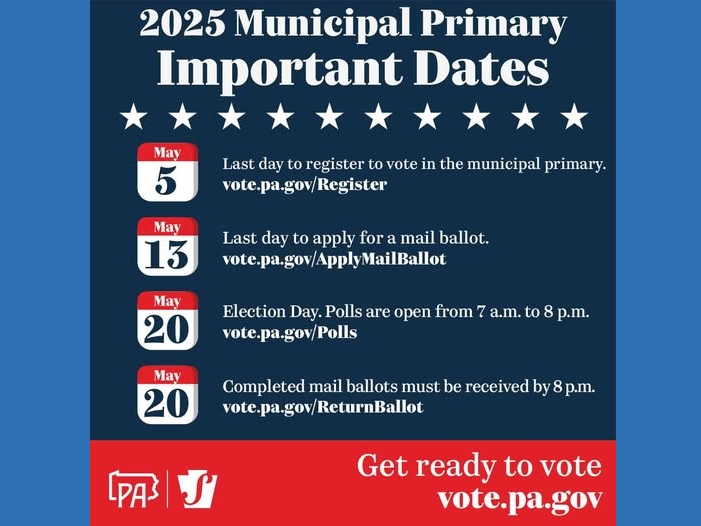It’s not often I’m at a loss for words, but I had a difficult time getting this post started. I regularly share information ahead of elections – both primary and general – along with the research I do for the races on my own ballot (in case anyone living nearby can benefit). Indeed, a full 7% of the posts on this blog are devoted to better understanding our candidates, our offices, and the structure of our government – and they always include a firm exhortation from me that anyone who can vote… should.

Image credit: [1]
Apathy at the Polls
For years I have been baffled by low voter turnout, which is notably anemic during primary elections, and especially so during the odd-numbered years, which feature judicial and municipal elections, rather than attention-grabbing seats at the federal level. In the 20-plus years I’ve been voting, we’ve seen a growing consolidation of power in the executive branch, and (while it’s not the only reason) I believe that part of why that has been happening is because of our tendency as voters to be largely uninvolved in elections that don’t involve the White House.
I get it – I don’t agree with it, but I understand that there are many reasons why people just don’t bother…
- Apathy: municipal and judicial elections feel like they’re low stakes, and it is human nature to ignore something as long as we have the luxury to do so, i.e. until we’re affected by it
- Betrayal: there are people being affected by various issues who feel like their lives haven’t improved no matter who has been in power over the years, leading them to believe that no one will actually work to make things better
- Overwhelm: there are people who put their faith in our constitution and the structure of our republic, and watching that get steamrolled with seemingly no consequences is demoralizing
- Lack of options: it can be difficult to muster the time or energy to vote if you have a lack of likeable candidates or a lack of candidates altogether, e.g. one or zero candidates in a given race
I regularly preach about the importance of voting in every election, claiming that involvement in local elections may be even more necessary than in federal ones. I still believe that, especially since it now feels like the biggest wins that may come at the federal level over the next four years will simply be stopping (or even just slowing) the systematic dismantling of critical infrastructure and basic rights that guarantee a certain quality of life for us here in America. With that said, I’m not feeling a lot of enthusiasm going into this primary election.
Underwhelming Ballots
I try to avoid talking about my party registration on this blog in order to avoid potential labels and assumptions about who I am and what I believe. I want the facts I share here to speak for themselves, and I try hard to provide interpretations that are based on those facts, not simply my opinions (I say in what is maybe my most opinion-heavy post ever). But long-time readers of this blog (especially of my primary election posts) will know, based on my ballot, that I am a registered republican. Despite living in a fairly purple district, and despite republicans having higher registration numbers than democrats nationwide for the last three years, [2] I still don’t have much going on in this election. (Granted, the real juicy race this week is for Pittsburgh’s mayor, and I am neither a democrat nor a city resident. [3])

Image credit: [4]
Indeed, the only two races on my ballot in which there are more candidates than available slots are for state-level judicial positions: Superior Court and Commonwealth Court. Allegheny County Sheriff and County Council have one candidate each on my ballot, and the County Court of Common Pleas has six candidates (I can vote for up to eight). Once I get into my local elections, I have some races without any candidates listed at all – for important things like School Board. To make matters more frustrating, many of my local candidates have no website (or anywhere I can find information about them) and/or haven’t responded to the League of Women Voters survey, which is the first place I start with my election research every time. [5]
Voting is Not Enough
And the lack of candidates troubles me because it feels indicative of a lack of involvement. I don’t remember the last time I was bored by the news; indeed, I have had to limit my news intake (and especially my social media intake) for mental health reasons. But when I do log on, I see outrage over things that are happening across our country and how our country is acting on the world stage. I see opinions, and memes, and viral sharing of headlines from people who feel passionately about a range of issues. What I don’t see as much of… is engagement with elected officials. While ranting on social media (or on a blog!) can provide a quick outlet for one’s emotions, it’s not – relatively speaking – a useful one.
The echo chamber of social media does absolutely nothing to change others’ opinions – in fact, it leads people to become more entrenched in what they already believe. [6] Imagine, instead, if that energy were channeled through emails and phone calls toward members of the school board about curriculum, or borough council about policing, or state legislators about access to health care. A representative democracy derives its power from the consent of the governed, but silence represents consent – and it doesn’t matter how many outraged memes we share if our elected officials (at low and high levels of government alike) don’t know how we feel.

Image credit: [7]
At my day job, I do my fair share of regular outreach to elected officials, but in my personal life, I have been slacking – I admit it, and I intend to change that. If you have expressed a political opinion to a friend or family member, now is the time to let your representatives know what you think and what positions you want them to represent. It doesn’t matter if you didn’t vote for them – in fact, it’s probably better if they don’t only hear from their supporters. If you don’t know where to start, League of Women Voters has a way to find your officials and how to contact them. Start here and make a plan to contact them regularly about issues that are important to you – chances are what you’re worried about cannot wait until the midterm elections, let alone the next presidential election. [8]
And if you’re a registered republican in Pennsylvania and Allegheny County, I hope this spreadsheet is of use to you.
But more than that, I hope you vote if you can, and I hope you make yourself known to your elected officials.
Thank you for reading.
[1] https://www.facebook.com/photo/?fbid=1147722547397409&set=a.224300119739661
[2] https://news.gallup.com/poll/655157/gop-holds-edge-party-affiliation-third-straight-year.aspx
[6] https://radicalmoderate.online/november-2020-elections-part-2/
[7] https://smea.uw.edu/currents/how-to-be-a-political-influence-as-an-average-citizen/
[8] https://www.lwv.org/blog/your-members-congress-must-attend-town-halls-turn-heat
0 Comments